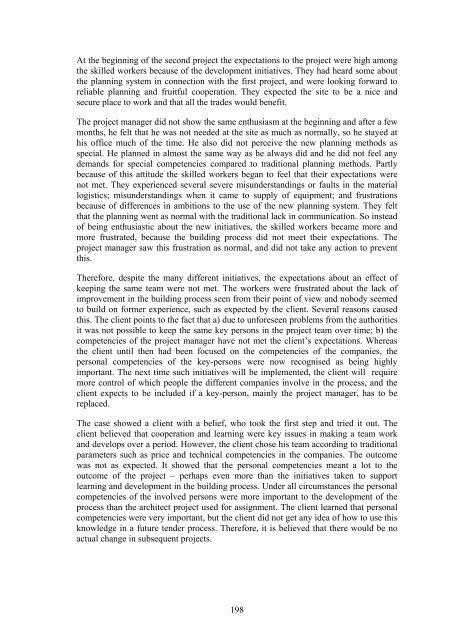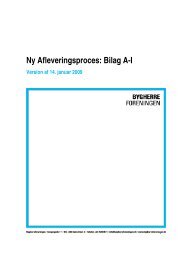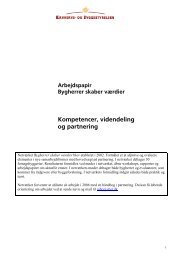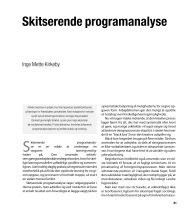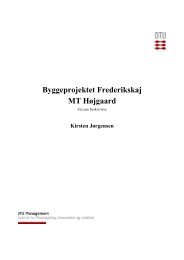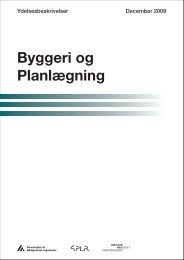Udvælgelses- dan og tildelingskriter ske byggesektor ... - RenProces
Udvælgelses- dan og tildelingskriter ske byggesektor ... - RenProces
Udvælgelses- dan og tildelingskriter ske byggesektor ... - RenProces
You also want an ePaper? Increase the reach of your titles
YUMPU automatically turns print PDFs into web optimized ePapers that Google loves.
At the beginning of the second project the expectations to the project were high among<br />
the skilled workers because of the development initiatives. They had heard some about<br />
the planning system in connection with the first project, and were looking forward to<br />
reliable planning and fruitful cooperation. They expected the site to be a nice and<br />
secure place to work and that all the trades would benefit.<br />
The project manager did not show the same enthusiasm at the beginning and after a few<br />
months, he felt that he was not needed at the site as much as normally, so he stayed at<br />
his office much of the time. He also did not perceive the new planning methods as<br />
special. He planned in almost the same way as he always did and he did not feel any<br />
demands for special competencies compared to traditional planning methods. Partly<br />
because of this attitude the skilled workers began to feel that their expectations were<br />
not met. They experienced several severe misunderstandings or faults in the material<br />
l<strong>og</strong>istics; misunderstandings when it came to supply of equipment; and frustrations<br />
because of differences in ambitions to the use of the new planning system. They felt<br />
that the planning went as normal with the traditional lack in communication. So instead<br />
of being enthusiastic about the new initiatives, the skilled workers became more and<br />
more frustrated, because the building process did not meet their expectations. The<br />
project manager saw this frustration as normal, and did not take any action to prevent<br />
this.<br />
Therefore, despite the many different initiatives, the expectations about an effect of<br />
keeping the same team were not met. The workers were frustrated about the lack of<br />
improvement in the building process seen from their point of view and nobody seemed<br />
to build on former experience, such as expected by the client. Several reasons caused<br />
this. The client points to the fact that a) due to unforeseen problems from the authorities<br />
it was not possible to keep the same key persons in the project team over time; b) the<br />
competencies of the project manager have not met the client’s expectations. Whereas<br />
the client until then had been focused on the competencies of the companies, the<br />
personal competencies of the key-persons were now rec<strong>og</strong>nised as being highly<br />
important. The next time such initiatives will be implemented, the client will require<br />
more control of which people the different companies involve in the process, and the<br />
client expects to be included if a key-person, mainly the project manager, has to be<br />
replaced.<br />
The case showed a client with a belief, who took the first step and tried it out. The<br />
client believed that cooperation and learning were key issues in making a team work<br />
and develops over a period. However, the client chose his team according to traditional<br />
parameters such as price and technical competencies in the companies. The outcome<br />
was not as expected. It showed that the personal competencies meant a lot to the<br />
outcome of the project – perhaps even more than the initiatives taken to support<br />
learning and development in the building process. Under all circumstances the personal<br />
competencies of the involved persons were more important to the development of the<br />
process than the architect project used for assignment. The client learned that personal<br />
competencies were very important, but the client did not get any idea of how to use this<br />
knowledge in a future tender process. Therefore, it is believed that there would be no<br />
actual change in subsequent projects.<br />
198


